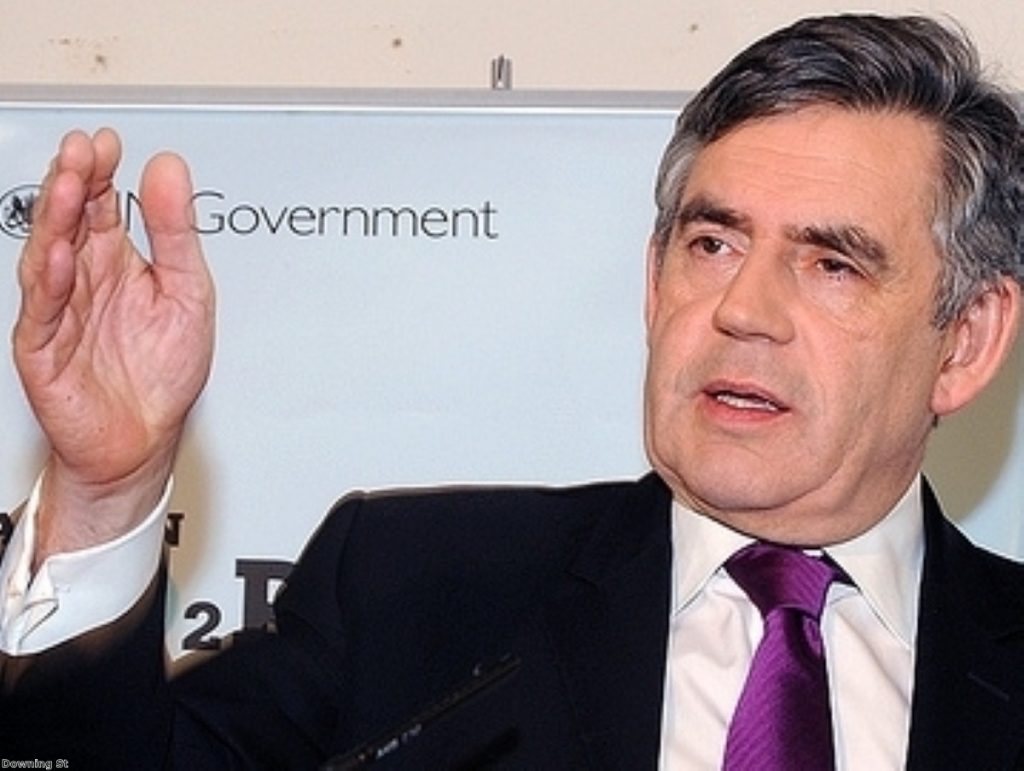Brown: ‘We were misled’ by the banks
Gordon Brown has spoken of banks’ ‘chronic recklessness’ in extracts from his new book.
The former prime minister’s work, entitled ‘Beyond the Crash’, is currently being serialised in the Guardian – and reveals he felt “misled” over the weaknesses in the Royal Bank of Scotland, now owned predominantly by the taxpayer.
In the extract released today, Mr Brown speaks of “an unseen, unregulated shadow banking network that grew in volume to become more than half the entire system, and operated far outside normal rules and procedures”.


Tackling the attitude of banks to risk-taking directly, the ex-prime minister has little good to say of the likes of Sir Fred Goodwin and the chiefs of HBOS.
He goes on: “Right at the heart of the world’s biggest banks was a culture of unethical financial practices that were, right up to boardroom level, connived at, condoned and rewarded.
“It was nothing short of chronic recklessness powered by unchecked greed. I was furious to discover that other major banks too were recklessly using their customers’ own money to speculate.”
Mr Brown writes of his experience at the height of the financial crisis, as “one of those moments when markets did not automatically come to a safe equilibrium in the manner the familiar old textbooks suggest.”
Then in a swipe at the current government’s narrative of holding Mr Brown responsible to the country’s dire fiscal situation, he adds: “There are good reasons for this, some of which serious neoliberal thinkers happily accept, but which have been willfully obscured in some of the less serious domestic political debates.”
But the most damning verdict is reserved for those running the ill-fated RBS. Mr Brown writes: “People will rightly ask why we did not know earlier of the fundamental weakness of Royal Bank of Scotland. The simple answer is: we were misled.”
The subject of bankers’ bonuses also comes in for harsh criticism, as the former prime minister directly links the practice with the banks’ abject failure to hold sufficient capital.
Mr Brown writes: “Even as taxpayers all around the world were losing out as a result of their recklessness, the bankers continued to claim that the grotesque rewards they enjoyed were essential to the banking sector and the public interest.”
The issue of banking reform continues to be highly politically charged. Although the government removed Alistair Darling’s ‘bonus tax’, it did introduce a one-off levy of £2 billion.
Ministers wary of the climate of public anger during the spending review period have warned that if banks continue to dish out ‘excessive’ remuneration, then a further bonus tax may be introduced.
A commission is currently reviewing how banks will be structured in the future, with business secretary Vince Cable having actively argued for a separation of retail and investment sectors to insulate the taxpayer from future shocks.

